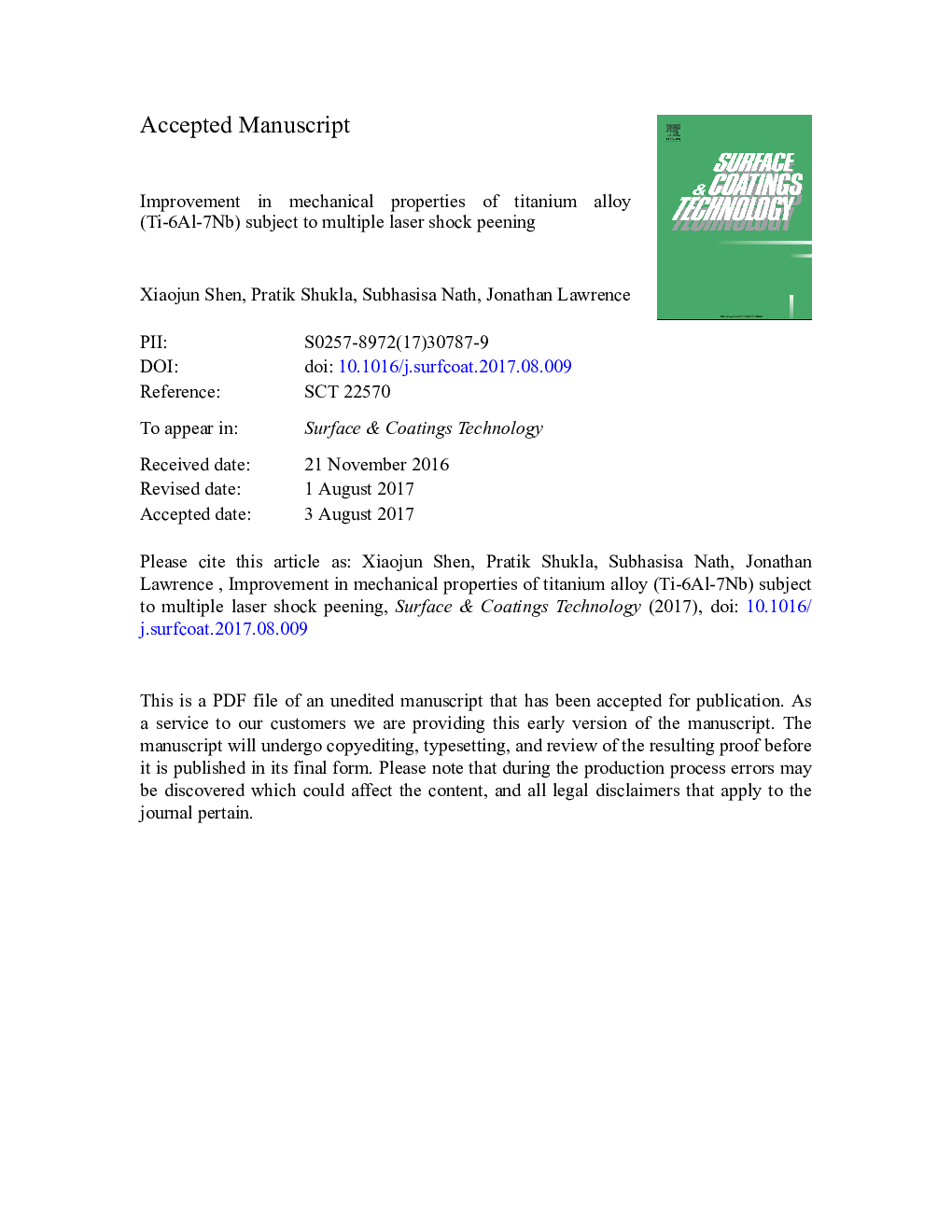| Article ID | Journal | Published Year | Pages | File Type |
|---|---|---|---|---|
| 5464634 | Surface and Coatings Technology | 2017 | 24 Pages |
Abstract
This paper is focused on laser shock peening (LSP) of titanium alloy (Ti-6Al-7Nb) for the first-time. This was to improve upon the artificial implant failures caused by destitute wear resistance of titanium alloys. As such, millions of patients are suffering from osteoarthritis pain, which costs billions of pounds annually to end users as they either have to undergo a complete replacement of the particular implants or a second surgery subject to implant failures. Therefore, the effect of multiple impacts on the mechanical properties and sliding wear behaviour of Ti-6Al-7Nb subjected to LSP were investigated. Ti-6Al-7Nb has the advantage of biocompatibility as the material can be applicable for orthopaedic implants. It is critical to improve the mechanical properties and wear resistance. LSP is one of the most effective methods to improve mechanical properties. Thus, in this study X-ray diffraction (XRD); Scanning Electron Microscope (SEM); surface roughness using 3-D profiling; microhardness using Vickers indentation method; and sliding wear with a tribometer were employed to measure the effect of Ti-6Al-7Nb alloy subjected LSP. It was found that the microhardness of Ti-6Al-7Nb alloy can be effectively improved from 290 HV30 to 369 HV30. In addition, the average the grain size was measured to be 10 μm and showed a reduction of 67%. The surface roughness was increased after multiple LSP from 0.15 μm to 0.52 μm. However, the wear resistance was improved by 44% after multiple LSP. The findings from this work will contribute towards extending the services time of orthopaedic implants and help patients undergo reduced number of surgeries.
Related Topics
Physical Sciences and Engineering
Materials Science
Nanotechnology
Authors
Xiaojun Shen, Pratik Shukla, Subhasisa Nath, Jonathan Lawrence,
